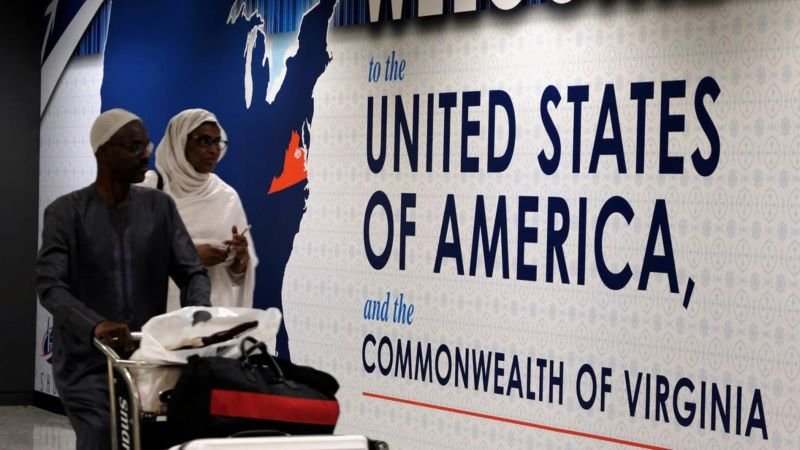GHANA has confirmed that it has started accepting West African nationals deported from the United States as part of Washington’s ongoing immigration crackdown, becoming one of the first West African nations to formalize such an arrangement.
News Point Nigeria reports that President John Dramani Mahama made the disclosure on Wednesday, revealing that the first batch of deportees comprising 14 individuals, including Nigerians, a Gambian, and other West African nationals had already arrived in Accra.
According to Mahama, the Ghanaian authorities are facilitating the safe return of these deportees to their respective home countries, ensuring they are not stranded upon arrival.
“We were approached by the U.S. to accept third-party nationals who were being removed from the U.S., and we agreed with them that West African nationals were acceptable because all our fellow West Africans don’t need a visa to come to our country,” Mahama said, defending the decision.
The president further justified the move by pointing out that West Africans already enjoy visa-free entry into Ghana under the ECOWAS protocol on free movement.
The move comes against the backdrop of Washington’s intensified deportation drive under U.S. President Donald Trump, whose administration has prioritized returning migrants to their countries of origin or, where possible, to so-called “third countries” willing to accept them.
Rights groups have repeatedly criticized the practice, warning that deportees often face safety risks or statelessness. Despite this, the Trump administration has continued to push for agreements with African nations.
Similar arrangements have already seen deportees sent to Eswatini, South Sudan, and Rwanda, even in cases where the individuals had no prior connection to those countries.
In contrast, Nigeria has rejected overtures from Washington to accept deportees from third countries.
Minister of Foreign Affairs Yusuf Tuggar stated in July that the Federal Government would not agree to such arrangements, citing both national security and economic considerations.
“Nigeria will not be a dumping ground for deportees from other nations. Our priority is to protect Nigerian citizens and maintain order within our borders,” Tuggar said.
The latest development follows President Trump’s July 9 meeting with five West African leaders — from Gabon, Guinea-Bissau, Liberia, Mauritania, and Senegal during which one of the main agenda items was persuading them to cooperate with U.S. deportation efforts.
While Ghana appears to have fully embraced the plan, other West African countries remain cautious, with some citing concerns about absorbing individuals with criminal records or unclear national identities.
However, critics warn that without a robust reintegration plan, deportees may face stigmatization, unemployment, and vulnerability to recruitment by criminal networks.
Ghanaian officials maintain that their focus is on humanitarian considerations and regional solidarity, insisting that the deportees will be treated with dignity.







